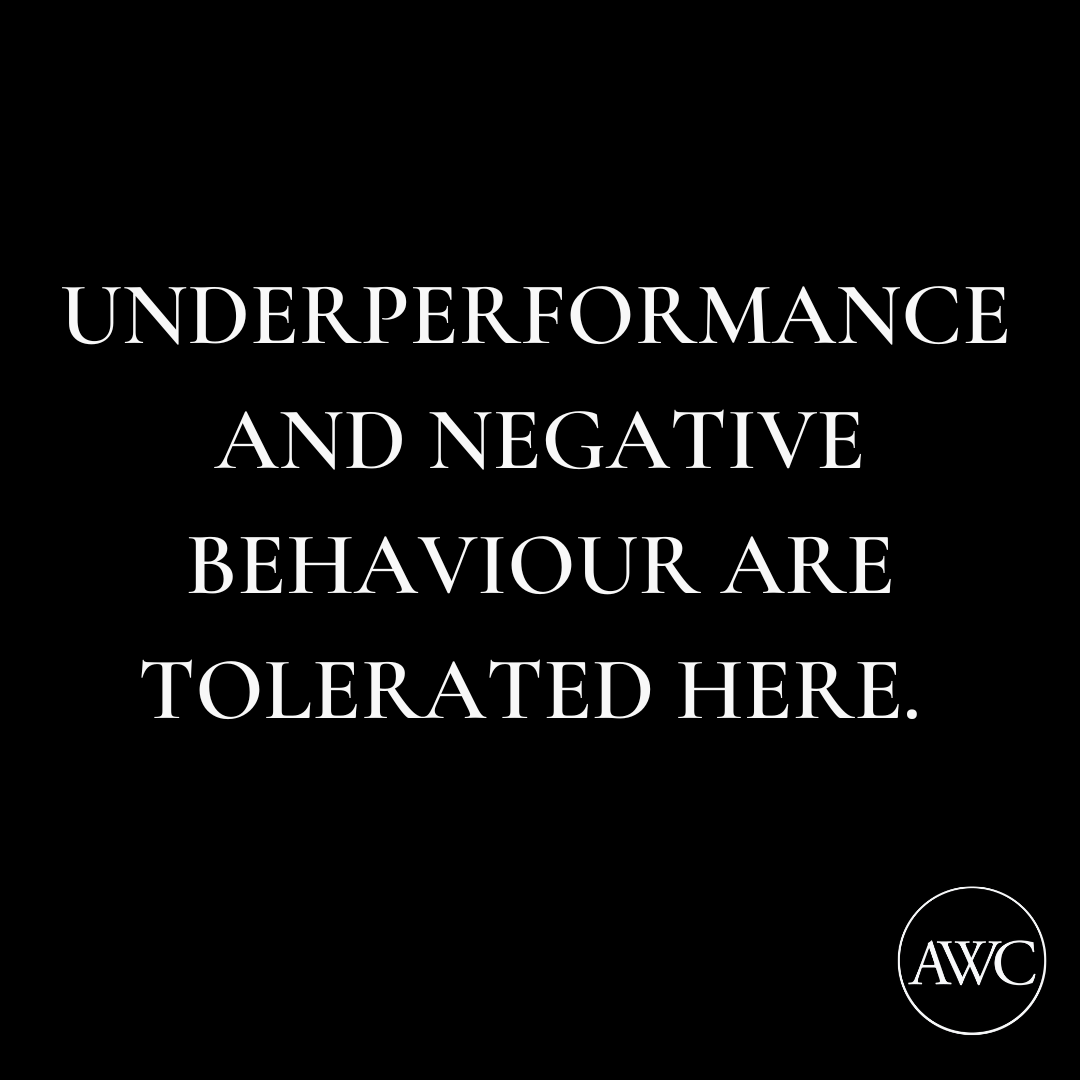Don't Ignore the Elephant in the Room: The Consequences of Avoiding Performance Conversations
For every difficult conversation you put in the ‘too hard basket’ this sign gets bigger and bigger to the rest of your organisation.

Regular performance conversations are an essential part of keeping teams productive, engaged, and motivated. However, when these conversations are avoided or ignored, the consequences can be significant.
Without regular performance conversations, team members may become unclear about their goals and expectations, leading to confusion, decreased motivation, and engagement. Missed opportunities for improvement can also occur, leading to a lack of growth and development. Additionally, decreased productivity, retention issues, and a loss of valuable team members can arise.
Ignoring the need for performance conversations with negative team members can result in even more severe consequences. Negative behaviour can significantly impact team morale, productivity, and retention rates. Avoiding these conversations can lead to decreased morale, increased conflict, lost productivity, and turnover.
By prioritising performance conversations and taking action when needed, leaders can create a culture of accountability, excellence, and success. Team members who are held accountable for their performance are more likely to feel motivated, engaged, and take ownership of their work. Ignoring performance conversations can create a culture of complacency, where underperformance or negative behaviour is tolerated.
Here are five tips on how to have difficult performance conversations with team members:
- Prepare: Before having the conversation, take time to prepare your thoughts and gather relevant information. This will help you stay focused and avoid getting sidetracked during the conversation.
- Be Clear: It's essential to be clear about the specific performance issues or negative behaviours you need to address. Use specific examples and data to support your points, and avoid making generalisations or assumptions.
- Be Respectful: While it's crucial to be clear about the issues, it's equally important to approach the conversation with respect and empathy. Acknowledge the team member's strengths and contributions to the team and focus on finding solutions rather than criticising.
- Listen: Performance conversations should be a two-way dialogue, so take time to listen to the team member's perspective. Encourage them to share their thoughts and feelings about the situation, and be open to their feedback.
- Follow-Up: After the conversation, follow up with the team member to ensure that they understand the expectations and any action steps that need to be taken. Regularly check in to see how things are progressing and provide support and feedback as needed.
By following these tips, you can have more productive and effective performance conversations with your team members, and help them improve their performance and behaviour in the workplace.
READ MORE










